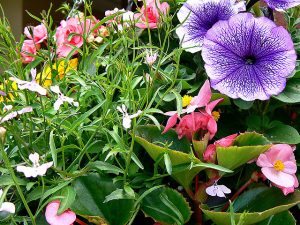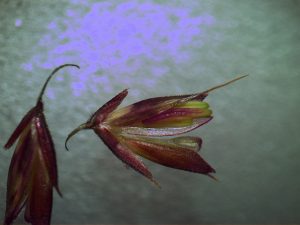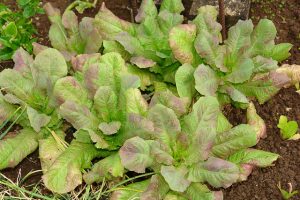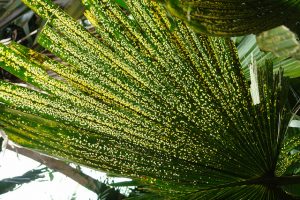All dirt is created equally and there is no way to get good dirt or bad dirt, right? Wrong. Dirt – or soil as we prefer to call it – is among one of the most complex features that you have in your backyard. Soil is the most important feature in your yard as well – everything comes from the soil and is sustained by the soil.
When the dirt in your yard is missing out on one important element or product, you will certainly see that nothing is growing as tall or as strong as it should be growing. This could show up in different ways on your trees – they may not generate as much fruit, your leaves don’t look as healthy, or maybe you are having trouble getting flowers that are colorful.
When you are growing trees specifically, it is very important to recognize the genetic makeup of your soil, exactly what the pH of your soil is, and even what sort of soil you have.
So just what should be in your soil? Here are the most essential elements:
4. Air Space
- Enables far better watering and water movement
- Stops any type of compaction
- Aerate your dirt for better air space
According to Deep Root, “Soil pore space is important for aeration, infiltration, and healthy root growth. An ideal soil has 50% pore space. The larger pores are filled with air, and the smaller ones with water. The remaining 50% of soil is 45% mineral materials and 5% organic matter. When a soil is compacted, soil particles are squeezed together, which reduces total soil pore space. Natural soils have pore spaces between individual soil particles and between clumps of soil particles. These clumps are called soil aggregates. Soil aggregates in natural soils are called peds. Activities which decrease pore spaces between soil particles, and activities which destroy soil ped structure and ped pore space, generally negatively impact trees. Activities that can cause compaction include, for example, loads from foot and vehicular traffic and equipment, other heavy loads, moving soil, stockpiling soil, and even tilling.”
So exactly how can you prohibit dirt compaction? You have to have air in your soil. The more air that your soil has, the better it will be for your plants. Water will move quickly and easily into that space to make sure that it permeates deep into the roots, however, space additionally permits your plants to dry so that there isn’t really any type of mold or mildew development. Obviously, space also means that raw material, nutrients, and other valuable natural elements can move throughout the soil without delay.
Of course, you want to have air naturally, but that isn’t always possible depending on where you live and how water drains from your yard. You can buy dirt that has even more air in it or you can freshen your soil with aeration. One more technique is to obtain mulch because that practically guarantees a layer with a great deal of air – just make sure it is healthy mulch.
3. Nitrogen
- Needed for root advancement
- Helps with cell growth
- Constructs strong, healthy proteins for growth
One of one of the most necessary components of your dirt is nitrogen. This is so important that if you do not have enough nitrogen in your soil, you might wind up with browned tips on your fallen leaves, poor fruit manufacturing, or even weak roots that will eventually stall the growth of your trees. Nitrogen, according to Hunker, aids your tree throughout the photosynthesis procedure – something that it needs a lot of help with in order to survive. Photosynthesis is the greatest single exporter of your tree’s power, so you want to provide it ample resources for that during the warmer months when your tree is generating the most power.
Trees that grow flowers (as well as fruits and nuts) require more nitrogen in the dirt than any other trees, yet it is required for all of them. From the root system of your trees on up, nitrogen aids with development.
Think you require more nitrogen in your dirt? You could include animal manure, especially chicken manure, to your gardening. Note that this can be a bit stinky, so you might want to plan it for a cooler day.
2. Phosphorous
- Produces power for the tree throughout growth
- Aids nutrient absorption
- Maintains a healthy and balanced tree throughout the year
The University of Minnesota sustains the assertion that phosphorous is among one of the most essential components of your soil for many reasons, but the key one is that the roots will certainly be more powerful, thicker, and much deeper if your soil has phosphorous. You have to have soil that is rich in phosphorous throughout all phases of the tree’s growth, but it is specifically important during the primary development years for your trees– around the first decade or so.
If you have low levels of phosphorous, you can anticipate seeing a reduced fruit yield, dying leaves and branches, or even purple splotches on the fruits, leaves, and growths of the tree.
Phosphorous is a difficult element to add to your soil, however, it can be done utilizing high-quality additives that have not been treated with prescription antibiotics.
1. Potassium
- Helps with liquid absorption
- Triggers enzymes to work
- Easy to include in your garden
According to the Northeast Farmer’s Association, “Potassium is the Great Regulator. It is active in numerous enzyme systems which control metabolic reactions, particularly in the synthesis of proteins and starches. Micronutrients, which have similar functions, are required only in minute amounts. In contrast, potassium must be present in large quantities, although it seems to be completely unsuited for its role. As tables show, some plants require more potassium than any other soil nutrient, even nitrogen.”
A great quantity of potassium in your dirt will certainly cause much better dampness retention, which can most definitely assist to stop damages from warm. Also much better, your more youthful trees will certainly have the ability to grow stronger roots.
If you do not have enough potassium in your dirt, you will see the signs almost immediately. To add some potassium, you can begin composing your soil, paying special focus on include fruit and vegetable scraps. If you do not compost, you can include wood ash, but this will influence the pH levels of your soil.
Whatever in your lawn begins within the dirt, so you need to take note of just how it impacts development and also life in your yard – so make sure that you are taking care of it properly.
If you are looking for a tree care professional in Redwood City, give Econo Tree Service a call today at (650) 200-2495. We will help you to better understand your trees and how to handle any watering, planting, pruning, or other tree issues that you may find – of course, we can also help you with other issues as well. We will provide you with the best possible tree service.





